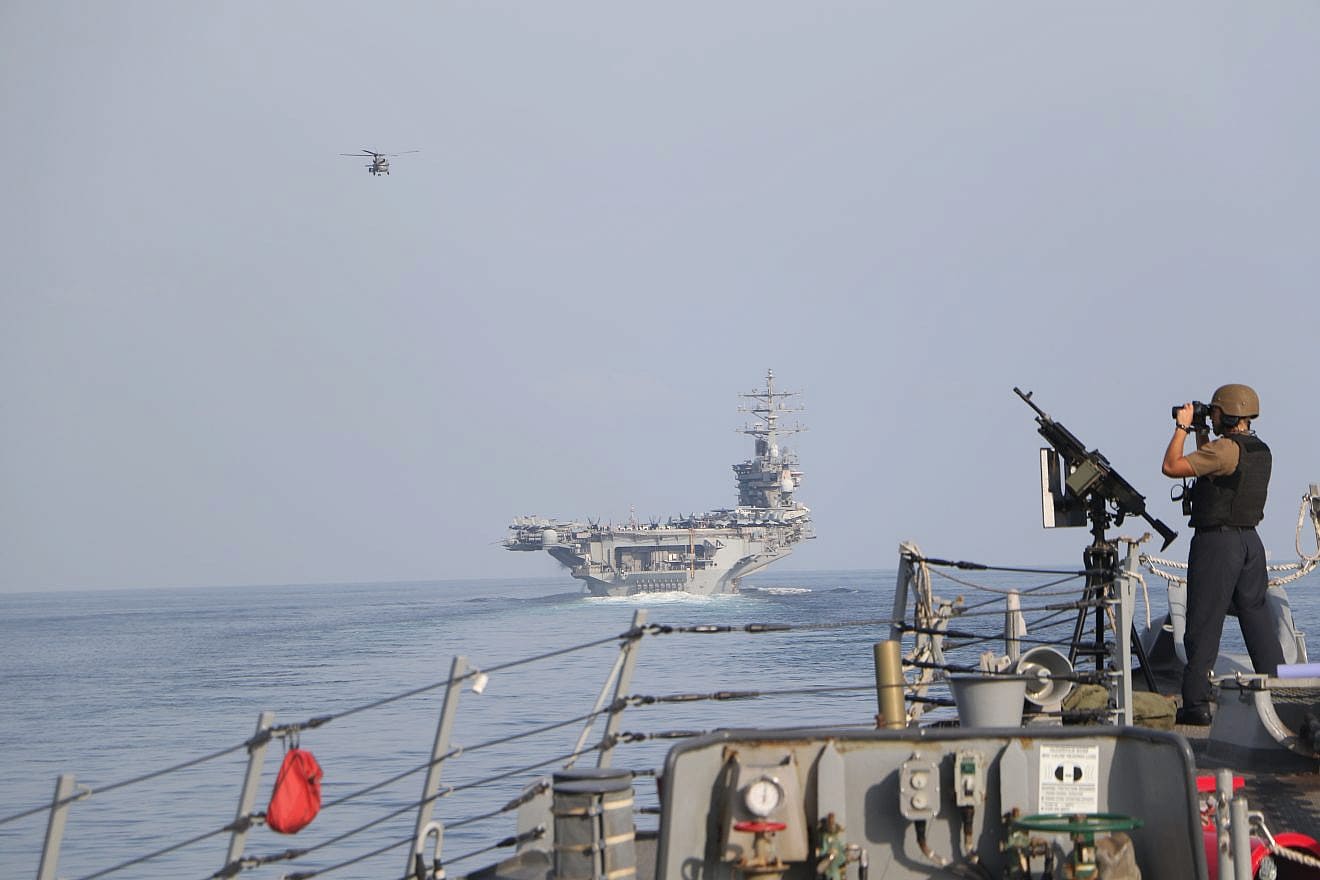U.S. President Joe Biden convened his national security team on Jan. 9, following one of the largest Houthi attacks in the Red Sea, during which U.S. and UK forces shot down nearly 20 drones and three missiles targeting a U.S. commercial vessel, alongside U.S. military ships. The advisers presented Biden “with military options for a collective response together with close partners,” a senior administration official said Thursday night on background.
After that meeting, Biden spoke on Jan. 9 with Lloyd Austin, the U.S. secretary of defense who was then in the hospital, and directed him to “carry out this response, which led to the strikes that took place this evening,” the senior official said.
News broke over the weekend that Austin had been hospitalized, without the White House’s knowledge, at Walter Reed National Military Medical Center in Bethesda, Md. due to “complications following a minor elective medical procedure.” It was later revealed that he was treated for prostate cancer and a subsequent infection. The Pentagon has said that Austin resumed his duties while remaining hospitalized, but not that he has been released yet.
“The United States has carried a special and historic obligation to help protect and defend these arteries of global trade and commerce, and this action falls directly in line with that tradition,” the senior official added. “The Houthis claim that their attacks on military and civilian vessels are somehow tied to the ongoing conflict in Gaza. That is completely baseless and illegitimate. The Houthis also claim to be targeting specifically Israeli-owned ships or ships bound for Israel. That is simply not true.”
The Houthis—whom the Biden administration de-listed as a terror group in 2021—instead “are firing indiscriminately on vessels with global ties,” the senior official said. “Most of the ships that have come under attack have nothing whatsoever to do with Israel, and even if they were—even if that were not the case, it is no justification for these illegal attacks in international waterways.”
“At bottom, these actions present a threat to us and to the entire world,” the senior official added. “Our actions are focused on the dangers posed to the lives and crews of these vessels and the stability and security of global commerce throughout international waters.”
A senior Pentagon official, who also briefed reporters, said that the strikes “were launched from air, surface and subsurface platforms and destroyed multiple targets in Houthi-controlled areas of Yemen.”
“We conducted the strikes with a variety of manned aircraft from the United States Navy, United States Air Force and the U.K.,” the senior military official said. “Precision-guided munitions were used to destroy the targets and also to minimize collateral damage. Let’s emphasize that these strikes have no association and are complete and separate from Operation Prosperity Guardian, which is a defensive coalition currently comprised of 22 countries operating in the Red Sea, Bab el-Mandeb and the Gulf of Aden.”
Asked what the consequences will be for Iran, the senior administration official said “We have been quite clear about the fact that Iran is a primary, if not the primary, enabler or supporter, sponsor of the Houthis and that Iran has been involved operationally in the conduct of these attacks.”
“They provided information and intelligence to the Houthis. They provided the Houthis the very capabilities that they have used to conduct these attacks. So we believe that they have been certainly involved in every phase of this,” the official said.
Washington has conducted “a longstanding and deep pressure campaign” against Iran “over a number of years, including related to their activities in Yemen and their sponsorship of other proxies around the region, other proxies who have conducted attacks on U.S. forces,” the official said. “I’m not going to telegraph any additional future actions, but suffice it to say we do hold Iran responsible for the role that they have played with the Houthis and with the other groups in the region that have conducted attacks against U.S. forces and have made them aware of that.”
Asked if Iran is likely to renew calls for attacks on Israel in response to the joint strike on the Houthis, the senior administration official said, “Suffice it to say Iran sponsors a number of groups that conduct attacks on Israel on a daily basis, obviously starting with and including Hamas, with whom Israel is engaged in an armed conflict right now in real-time in Gaza, but also including Hezbollah, including Shia militia groups in Iraq and Syria, and obviously including the Houthis.”
“So we have no reason to believe that there is anything related to this that we’re seeing that is imminent, but nor would we be surprised if the sorts of attacks that Iran has sponsored, to the condemnation of much of the world, continue,” the official added.


























